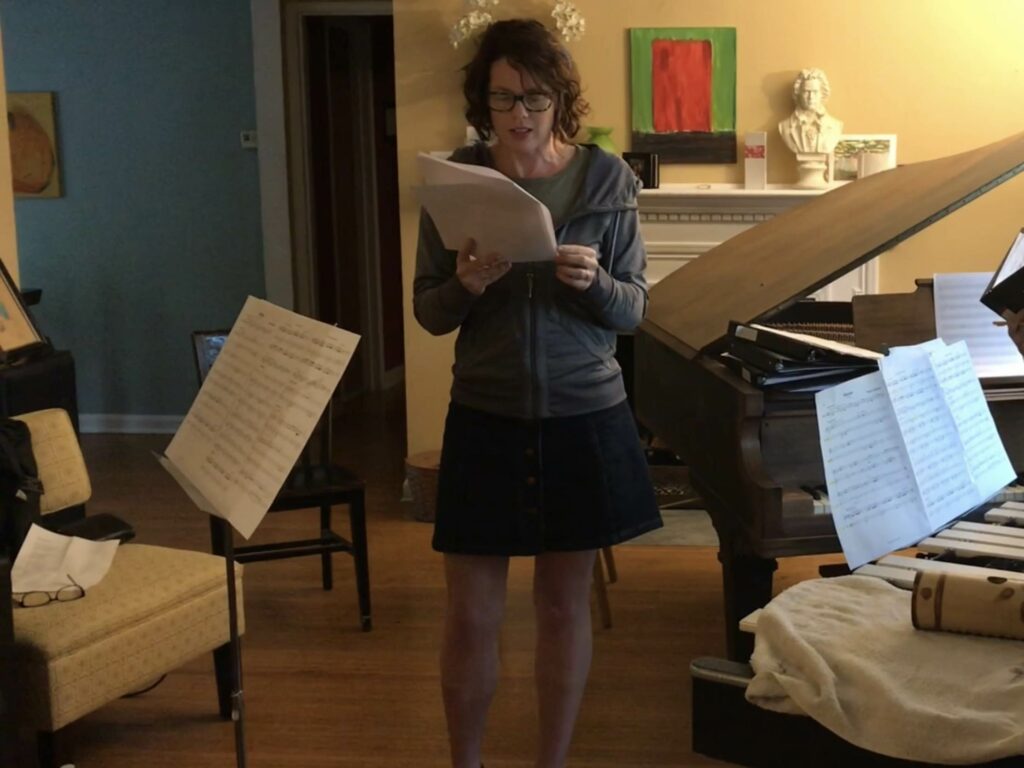Selected by Hoa Nguyen as a finalist for the 2018 Omnidawn Revealed Identity Poetry Book Prize
Resemblance
Goldfinch, speaker in a [world] made intelligible
who not so much thinks as overhears thoughts
as in a Bach fugue—emptied of semantic content
no introspection but still: unmitigated thought
(or at least what feels like thought)
arrow-pure as flying toward glass
“Yes, that must be what happened”:
safe to infer the goldfinch did not know
the windows were there how easily we
imagine its cognition project
mistakes into its mind: goldfinch error!
must have been seduced by the clarity
of two layers of windows,
must have lit off for the raspberry bush
on the other side of both
or maybe it had only in mind a through-path
as if, in flight, it could be without intention
Some of us are “really bad” at turning inside-out
build bang-up models instead:
dew materializing on imagined grass
the whole turf ‘saving the phenomena’
Do you also assume that reality has edges?
Bounce x-rays off of crystals
modify chemical reactions spot kinetic isotope effects
all so you can see the structure of the unseen—
all that hyperbranching and chirality
in your molecular models:
a certainty in yellow feathers bright enough even for you
Right before I ran over the dead goldfinch
with the actual mower
its yellow reached up from the virtually material lawn
its gray bird-cavity sank into the notional
in that instant for me its last
phenomenological experience felt known—
a brief consciousness, interrupted
You regard the resemblance
of your models as provisional, you optimist—
as if a mind, so dedicated,
could ever get it right
In the Presence of Western White
There exists a pine
(also: an entangled aluminum ion, a gene for limb-forming
shared by humans and cephalopods, mushrooms
whose spores travel on manufactured air…).
Say we bring these into being. Take the idealized
generic pine at the base of your understanding
of all pines—the one you teach a child to draw, preferably
against a blue sky. Whatever that looks like
for you us. The possible
and perfect as the a priori framework of the real
(mass as secondary quality, Lodgepole and Jeffrey,
a relation between the apparent angular position of the star
in Fig. 1-9 and the apparent direction of motion of raindrops
falling on the vertical windshield of a bus…).
I had the idea to conjure this pine first. You would prefer
I encounter some specific pine in reality, and
that the experience prompts me to render it, so that you can feel
you, yourself, have confronted a real thing in the wild.
And so I went looking. Against the multiplicity
of pines on the hill I chose a gnarled thing, wounded,
an accident, stunted by strange circumstances
of shade and pavement, bent extreme beside
the orderly fence—the furthest from perfect I could find,
thinking that was the real deal: unmitigated trust
in unmediated experience, high on sunshine and elevation, marveling
at the way needles of conifers create
a boundary layer of still air…. We have to ask, though:
if the pine we have roped off in thought
conceals composite particles whose existence
consists entirely in (only) probable jumps
from one orbital to another— but then
we would be confusing two worlds,
that of the picturesque and that of the comprehensible.
We scale up, tame averages to arrive at five-needle clusters
and long, thin cylindrical cones: enough, then,
with its contours and defects, to perceive the thing?
* Two realms, “of the picturesque and that of the comprehensible” come from Gaston Bachelard’s The New Scientific Spirit.
Jessica Reed reading: Resemblance
Jessica Reed reading: In the Presence of Western White

Jessica Reed’s chapbook, World, Composed (Finishing Line Press), is a dialogue with the ancient poet Lucretius, who first explored atoms in verse. Her work has appeared in Conjunctions, Crazyhorse, Denver Quarterly, Colorado Review, North American Review, Bellingham Review, New American Writing, Waxwing, Pank, Exposition Review, Diagram, The Writers’ Café Magazine, The Indianapolis Review, Isotope: A Journal of Literary Nature and Science Writing, and elsewhere. She was a finalist for the Omnidawn Revealed Identity Poetry Book Prize and a semi-finalist for the Cleveland State University First Book Prize. She has an MFA in poetry and a BS in physics, and has taught science poetry in Saudi Arabia and China. She grew up across the US, from the Mojave Desert to the Chesapeake Bay, and now lives next door to her parents in rural Indiana with her husband, solar panels, worm composting, and chickens. She currently teaches a seminar at Butler University on physics and the arts.